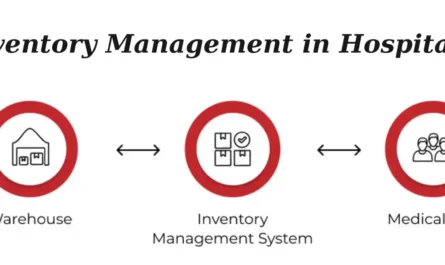A Stroke is a type of cardiovascular disease characterized by a blood vessel in the brain rupturing or bleeding, or when there is a blockage of oxygenated blood supply to the brain. This creates a hindrance in oxygenated blood reaching the brain cells, leading to neuron death. The brain cells damage and die within minutes of not getting enough oxygen and the damage is permanent. Brain cells do not regenerate like other body cells. This can cause lasting consequences or even death.
A cardiologist in Lahore shared some risk factors which contribute to the onset of stroke. But before we get into those, let’s share some symptoms by which one can detect a stroke from happening.
Signs And Symptoms
Symptoms occur in the body parts which are controlled by the damaged part of the brain by stroke. The stroke may be transient ischemic, ischemic or hemorrhagic. A transient ischemic stroke is caused by a clot in the blood which may dissolve on its own causing temporary (but sometimes, lasting) symptoms. Ischemic strokes are caused by a clot or developing plaque in the artery, which hinders oxygenated blood flow to the brain area. This leads to permanent symptoms or complications. Hemorrhagic stroke is caused by blood leakage or seepage into the brain by damage to any artery.
Stroke symptoms include:
- Immediate slurring of speech
- Paralysis in some part of the body or completely.
- Behavioral changes including enhanced agitation
- Numbness or weakened muscles in the arms, legs, face. This usually occurs on one side of the body
- You may have trouble walking and lose balance as well. Coordinated movements will be difficult to achieve
- Difficulty in speaking and understanding
- Your tongue may droop or fold to one side of the mouth
- Seizures and sudden pain in the head
- Nausea and vomiting may occur
- Partial or total sudden loss in one or more senses such as vision, smell or hearing etc
Risk Factors For Stroke
It is important to understand that anyone can stroke at any age. It depends on your lifestyle and other diseases that you might have, especially those related to the heart. Some of the worth-mentioning risk factors include:
What You Eat
What you put inside your body has a significant impact on your overall health. Research states that eating too much salt in your daily food can increase your risk of stroke up to 25 percent. Eating a diet rich in saturated fats and trans fats can hike up that cholesterol leading to plaque buildup in the arteries. This narrows the lumen of those arteries hindering smooth blood flow to the brain. In case the plaque and cholesterol buildup too much, blood thickens and arterioles get blocked, leading to stroke attacks and other cardiovascular diseases.
It is important that you eat a well balanced diet that is rich in vitamins, minerals, and antioxidants that your body needs. Do not go for too much junk food and fried items as they risk your heart and overall health.
Lack Of Physical Activity
Inactivity and a sedentary lifestyle increases the risk of stroke a lot. It is necessary to give your metabolism a boost by some exercise, even a light to moderate one. It is not necessary that you have to do some strenuous exercise. Even a brisk walk a few times a week can have added benefits.
High Blood Pressure
When you have high blood pressure continuously, you increase your risk of stroke. Elevated blood pressure in the long run damages the blood vessels, especially those in the brain leading to rupture. Small vessel disease can lead to ischemic or hemorrhagic stroke.
Heart Disease
Having a history of heart disease is an important risk factor to consider when it comes to stroke. It is also one of the major causes of death in survivors of stroke. For example, coronary artery disease can stop flow of oxygenated blood to the brain
High Red Blood Cell Count
If you have a high RBC count, your blood tends to get thicker and can clot more easily. This elevates the risks of strokes.
Illegal Drug Abuse
Intravenous drug abuse is closely linked to stroke attacks by the formation of clots. Cocaine and other illicit drugs are known to cause sudden strokes and other fatal consequences.
Some worth-mentioning risk factors include:
- Alcohol abuse
- Cardiac structure abnormalities and heart rhythm issues
- Age above 55
- History of stroke
- Obesity
- Diabetes
- Smoking cigarettes
Final Thoughts
Strokes can cause multiple complications and disorders. It is crucial to understand that the earlier treatment is provided, the more chances of survival and minimizing complications. Recovery is time-consuming but is possible depending upon the severity of the stroke.







